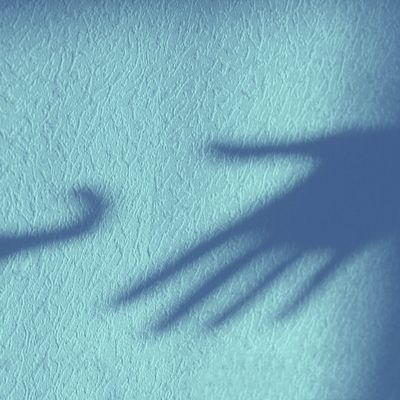
I remember holding a lukewarm coffee in the lobby of the Dallas Hilton Garden Inn when my father’s usually stoic face suddenly slumped. He was taking a call from our apartment’s superintendent, who had been desperately trying to reach us from Berlin all morning. We were on our way back home from a family trip to New Orleans, stuck in Dallas on a layover, and my father had just now noticed the many missed calls on his phone from a German telephone number.
“Okay. How terrible,” he kept repeating in an even monotone. I knew it must be bad news because for a German man, that was basically a scream of despair.
My parents’ apartment, my father explained when he hung up — my childhood home — had been broken into and ransacked. Immediately, we gave in to the masochist temptation to speculate over the what and the why and the how and the who: Why us? How long had the intruders been watching, waiting until they knew the apartment would be empty? I kept picturing these faceless black silhouettes slinking through the apartment, knocking over my dad’s carefully curated antiques, laughing at our stupidity and how easy the whole thing was. I wondered what kind of people they thought we were. I wondered what kind of people they were. And it was my mother who, in a broken voice, finally asked: “What about Adri’s stuff?”
My aunt Adriana, my mother’s sister, passed away in 2015 after a brief but vicious encounter with pancreatic cancer. She was my ersatz mother, equally warm in her boundless support and intimidating in her inimitable glamour, intelligence, and beauty. My mother and I had flown to Buenos Aires to care for her in the last months of her life, and when we arrived she had still been lucid enough to burn her Prada bags on the big parrilla in the backyard, muttering something about vultures waiting for her to drop dead while the acrid, animal smell of burning leather smoked up the air.
But Adriana liked to keep us guessing until the last minute. Never to be outdone by something as pedestrian as predictability, she ended up giving my mother all of her jewelry, so that she could one day give it to me. Her pearls, her rubies, her emeralds, her diamonds, the two Rolexes and the Cartier watch were my inheritance, a reminder of the kind of woman she had been and the kind of things she wanted touching her body: elegant, cool, rare, and expensive. More importantly: she wanted me to have those things, to one day have the rubies encircle my neck and the watches clasp at my wrists like armor. These objects mattered to her less for their actual material wealth and more because of what they symbolized: her very own form of emancipation. They were both her pride and her backup plan, her one-way ticket in case she ever needed to leave her husband and her life and start over. She never used that backup plan; now, it would be mine.
Except that those assholes stole it on January 2, 2018, at 2 p.m. local time. In the middle of the goddamn day.
***
I have other things to remember my aunt by, but her jewelry was significant to me because it was uniquely significant to her, because the promises those precious stones and diamonds held were promises that she was passing on to me. Grief, memory, and materiality are intrinsically intertwined. I can’t smell the Chanel Nº5 on the nape of my aunt’s neck anymore, or feel her thin fingers squeeze my shoulder — but I could attempt to conserve the ephemeral memory of her touch, her sardonic voice, her wry smile, in the objects that she had given me.
“A stolen heirloom of a lost loved one can trigger a very intense grief reaction,” says Mark Moran, the assistant executive director of the American Institute of Health Care Professionals says. “It can definitely prolong the grief. It can create a secondary loss — of losing the person twice.” We project so much of the lost person onto the material object, he explains, that having the object stolen feels like having the loved one ripped away from us all over again. I first lost my aunt to the treachery of her own mutating cells, and then I lost her all over again at the hands of a group of people whose faces and thoughts and feelings I will forever be forced to guess about.
“The symbolic loss of the heirloom will haunt you,” Moran says. And it’s true, I do feel haunted — by regret, by the intense violation of having a space I always thought safe be rendered unsafe, by the images of strange boots trampling over our carpets and strange hands grasping for my aunt’s precious remnants. I feel haunted by the thought of their ugly faces — because of course I have to make them ugly — breaking out into gleeful smirks when they find what remained of my aunt. I imagine dollar signs in their eyes, like cartoon villains.
It’s hard to accept that the people who broke into our house looked at our things, infused with so much memory and meaning, and saw nothing but a quick buck. I imagine myself standing there, shaking them, yelling, “You don’t understand! You don’t understand what this means!” But of course that’s silly. My aunt’s rubies — which for me are infused with generations of hope and despair and a deep, twisted family history — are nothing but a series of numbers on a calculator for the next person. I know this, and yet. “It is a myth that one truly recovers from grief,” Moran says. “One only learns to cope and live with that pain at some lessoned level, but the scar of loss is forever there — and that is not a bad thing. That is the price of love itself.”




